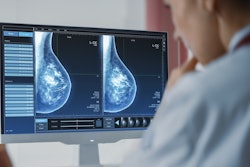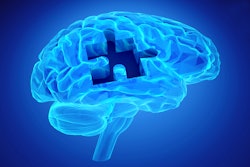More in Home
PET identifies risk of metastases in patients with HNSCC
October 1, 2024
ASTRO: Timing key to adding immunotherapy to chemoradiation
October 1, 2024
ASTRO: Black patients voice distrust in medical research
September 30, 2024
ASTRO: IMRT and proton therapy equally effective for prostate cancer
September 30, 2024
AuntMinnie 2015: CMS issues final CT lung cancer screening approval
September 30, 2024
ASTRO: Lu-177 dotatate shows promise for treating meningioma patients
September 30, 2024
FDA approves flurpiridaz F-18 PET tracer for imaging heart disease
September 27, 2024
Can men with negative prostate MRI skip systematic biopsy?
September 26, 2024
GAE could be cost-effective for knee osteoarthritis
September 26, 2024
What’s new for radiology in the No Surprises Act?
September 26, 2024
Vitamin D benefits during pregnancy extend to 7-year-olds
September 26, 2024





















